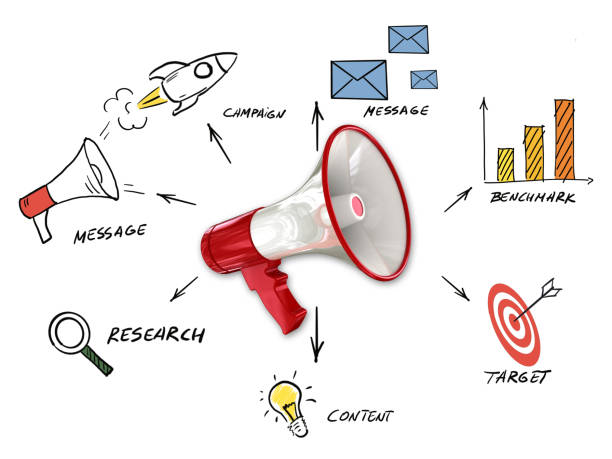The digital marketing landscape is continually evolving, and 2025 is poised to be a milestone year for the industry. As businesses strive to adapt to shifting consumer behaviors and rapid technological advancements, digital marketing growth in 2025 will be marked by innovation, personalization, and integration of cutting-edge technologies. Let’s explore the driving factors, emerging trends, and strategies that will define digital marketing growth in 2025.
Key Drivers of Digital Marketing Growth in 2025
Advancements in Artificial Intelligence (AI)
AI is revolutionizing digital marketing by automating processes, enhancing user experiences, and enabling hyper-personalization. By 2025, AI will become more sophisticated, allowing marketers to analyze consumer behavior, predict trends, and tailor campaigns with unprecedented accuracy. AI-powered chatbots, content generation tools, and recommendation engines will dominate the industry.
5G Connectivity Expansion
The global rollout of 5G networks will empower marketers to deliver richer content experiences, such as augmented reality (AR) and virtual reality (VR), in real time. Faster internet speeds and reduced latency will ensure seamless engagement, boosting digital marketing growth in 2025.
Rise of Privacy-Centric Marketing
With stricter data privacy regulations like GDPR and CCPA gaining traction, businesses are pivoting towards transparent and ethical data practices. First-party data collection, consent-based marketing, and privacy-focused ad strategies will be integral to building trust and driving sustainable growth in the digital space.
Increased Adoption of Voice Search
Voice assistants such as Alexa, Siri, and Google Assistant are reshaping how users search for information. By 2025, optimizing content for voice search will be essential for businesses aiming to capture the growing audience relying on spoken queries.
E-commerce Integration and Social Commerce
E-commerce platforms are evolving to offer more personalized shopping experiences, while social media platforms are integrating direct purchasing options. These trends will redefine consumer journeys, contributing significantly to digital marketing growth in 2025.
Emerging Trends in Digital Marketing Growth in 2025
1. Personalization at Scale
Consumers increasingly expect tailored experiences. Marketers will harness AI and machine learning to deliver hyper-personalized content across multiple touchpoints. Dynamic email campaigns, personalized product recommendations, and customized ad experiences will become the norm.
2. Video Content Dominance
Video content will continue to reign supreme in 2025. Short-form, captivating videos will be given priority by companies, as platforms such as TikTok, YouTube, and Instagram lead the way. Live streaming and interactive video ads will also play pivotal roles in boosting engagement rates.
3. Interactive and Immersive Experiences
AR and VR technologies will transform how brands interact with their audiences. From virtual try-ons in retail to immersive storytelling in advertising, these technologies will enhance consumer engagement, solidifying their importance in digital marketing growth in 2025.
4. Influencer Marketing Evolution
By 2025, influencer marketing will mature, focusing on authenticity and micro-influencers. Brands will collaborate with niche influencers to connect with highly engaged communities, ensuring better ROI and brand credibility.
5. Sustainability and Purpose-Driven Marketing
Customers are favouring brands that share their beliefs more and more. Digital marketing strategies will emphasize sustainability, inclusivity, and social responsibility, creating meaningful connections with audiences.
6. Automation and Programmatic Advertising
Automation tools will streamline campaign management, allowing marketers to focus on strategy and creativity. Programmatic advertising will leverage AI to optimize ad placements and improve targeting accuracy, driving better performance.
Strategies to Capitalize on Digital Marketing Growth in 2025
1. Leverage First-Party Data
As third-party cookies phase out, businesses must invest in collecting and analyzing first-party data. Building robust CRM systems and encouraging direct consumer engagement will ensure data-driven decision-making remains effective.
2. Invest in Content Marketing
The foundation of digital marketing will continue to be high-quality content. Brands should focus on creating valuable, relevant, and engaging content to foster loyalty and improve search engine rankings. Blogging, video marketing, and podcasting will be key channels.
3. Optimize for Mobile
With mobile usage dominating internet traffic, optimizing websites, ads, and campaigns for mobile devices is non-negotiable. Mobile-friendly designs, fast-loading pages, and mobile-specific ads will enhance user experiences and drive conversions.
4. Adopt a Multichannel Approach
Digital marketing growth in 2025 will hinge on integrating multiple channels to provide a cohesive brand experience. Social media, email, SEO, PPC, and content marketing should work in harmony to maximize reach and engagement.
5. Experiment with New Technologies
Brands must stay ahead of the curve by experimenting with emerging technologies like blockchain for secure transactions, AI for predictive analytics, and AR/VR for immersive storytelling. Early adoption can provide a competitive edge.
Challenges in Achieving Digital Marketing Growth in 2025
1. Data Privacy Concerns
Balancing personalization with privacy will be a significant challenge. Companies have to manage intricate rules while preserving customer confidence.
2. Keeping Up with Technology
Rapid technological advancements can be overwhelming. Companies must invest in continuous learning and upskilling to stay competitive.
3. Increased Competition
As digital marketing becomes more accessible, competition will intensify. Differentiating a brand in crowded markets will require innovative strategies and unique value propositions.
The Future Beyond 2025
While 2025 will witness remarkable advancements, digital marketing will continue to evolve. The integration of AI with human creativity, deeper consumer insights, and innovative use of technology will shape the industry’s trajectory. Brands that embrace change and prioritize their audience’s needs will lead the way in digital marketing growth well beyond 2025.
Conclusion
Digital marketing growth in 2025 will be driven by technology, personalization, and ethical practices. Businesses must adapt to shifting consumer expectations and leverage emerging trends to stay ahead. By prioritizing data-driven strategies, investing in cutting-edge tools, and fostering genuine connections with their audience, companies can unlock unprecedented growth in the digital realm.





